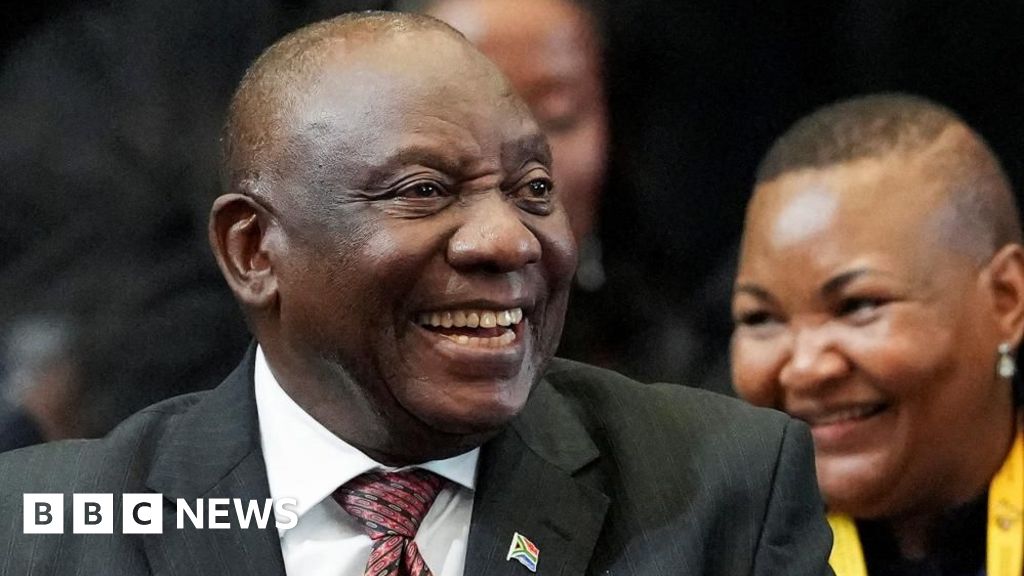South Africa’s parliament has re-elected Cyril Ramaphosa as the country’s president after the ruling African National Congress (ANC) and opposition parties reached a landmark coalition agreement.
The new national unity government is composed of Ramaphosa’s ANC, the centre-right Democratic Alliance (DA) and smaller parties.
The deal was finalized on a day of political drama that saw the National Assembly stay open late into the night for votes to confirm who will take power in the new government.
The deal comes after weeks of speculation about who the ANC would work with after it lost its parliamentary majority for the first time in 30 years in last month’s election.
It received 40% of the vote, while the DA came in second with 22%.
ANC secretary-general Fikile Mbalula called the alliance agreement an “extraordinary step”.
That means Mr Ramaphosa – who replaced Jacob Zuma as president and ANC leader after a bitter power struggle in 2018 – can retain power.
Since the country’s first democratic elections in 1994, when Nelson Mandela became president, the ANC’s approval ratings have remained above 50 percent.
However, support for the party has plummeted amid anger over corruption, unemployment and high crime rates.
The alliance between the centre-right Democratic Alliance and the ANC is unprecedented as the two parties have been rivals for decades.
Led by Nelson Mandela, the ANC led the campaign against apartheid in 1994 and won the country’s first democratic elections.
Critics of the DA accuse it of trying to protect the economic privileges established by the country’s white minority during apartheid, a charge the party denies.
Speaking to lawmakers in Cape Town on Friday night, DA leader John Steenhuisen said: “Today is a historic day for our country and I see it as the beginning of a new chapter.”
The National Assembly also appointed an ANC spokesperson to be sworn in, while the DA served as deputy speaker.

